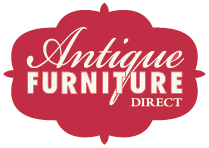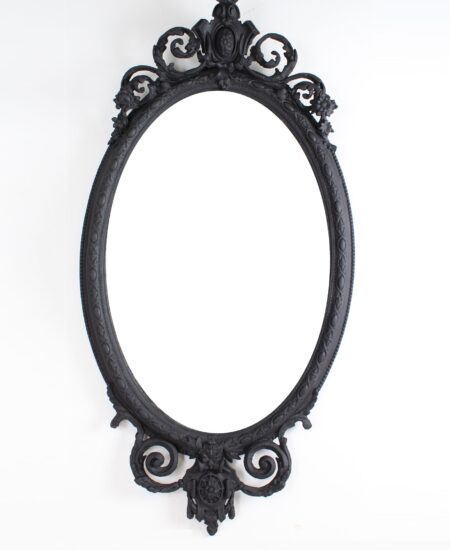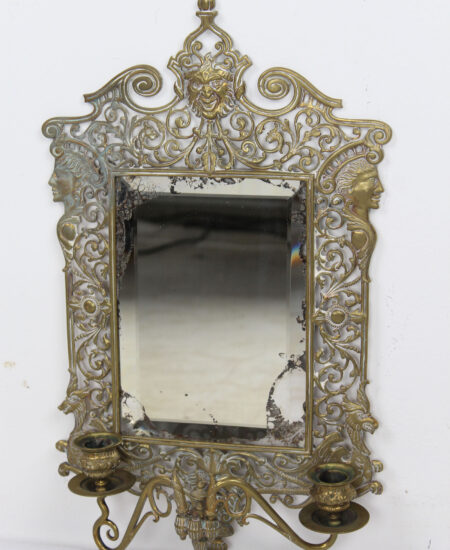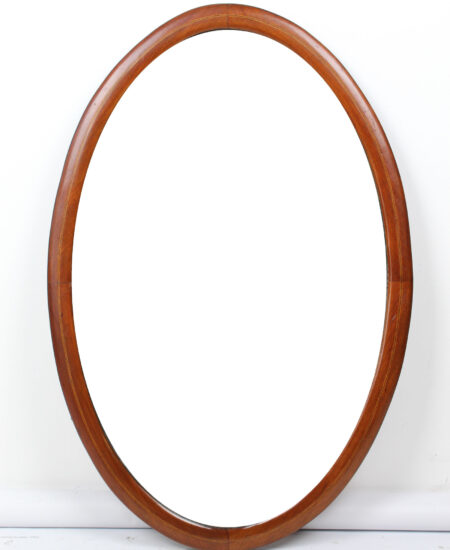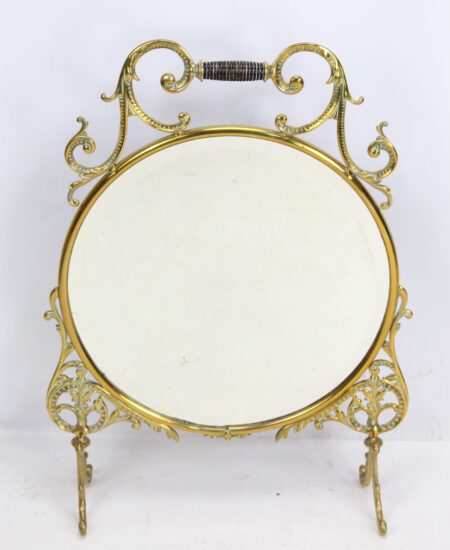-
Large Ebonised Antique Victorian Mirror
£350.00 Add to cart -
Victorian William Tonks Pierced Brass Girandole Mirror
£240.00 Add to cart -
Edwardian Mahogany & Inlaid Oval Mirror
£145.00 Add to cart -
Victorian Brass & Mirror Fire Screen
£350.00 Add to cart
Antique Furniture Direct we have a small range of antique mirrors for sale including wall mirrors, dressing table mirrors and occasionally cheval mirrors and overmantle mirrors. We also occasionally stock antique and vintage lighting such as desk lamps and side table lamps.
Mirrors first made their appearance in English homes in the mid-1660s. The first examples are small because glass was expensive, but as glass became cheaper the mirrors grew larger. Mirrors have the advantage of reflecting light back into a room so at a time when the only artificial light available was candlelight, they proved very useful. The girondole mirror is a wall mounted mirror with built in arms for holding candles. Another specialist wall mounted mirror is the over mantel mirror; these mirrors have flat bases to allow them to be placed on the top of a mantel piece where again candles could be positioned so as to reflect light.
Free standing mirrors, tall enough to view one’s whole reflection, are known as cheval mirrors and are mounted on a frame which allows them to be tilted to achieve the right viewing angle. Vanity mirrors also known as toilet mirrors or dressing table mirrors are smaller versions of the cheval mirror, designed to be placed on top of a dressing chest. Antique mirrors have two components; the mirror glass and the frame.
The original glass, if still in the mirror, will usually have a ripple effect because they were made from float glass, glass which was made flat by floating it on water during the manufacturing process. The backs are silvered and this will have darkened with age and invariably it will have rubbed off in places. The overall effect will be to give a soft and dark reflection. Those whose glass has been replaced will have a much brighter, whiter reflection as modern glass is made by the plate process where the glass is rolled flat and they are backed with aluminium, not silver. If the old glass is so badly worn as to compromise its function as a mirror, then it is probably preferable to replace the mirror. In fact the replacement of the glass does not greatly alter the value of a piece as much of the value and desirability lies in the frame.
